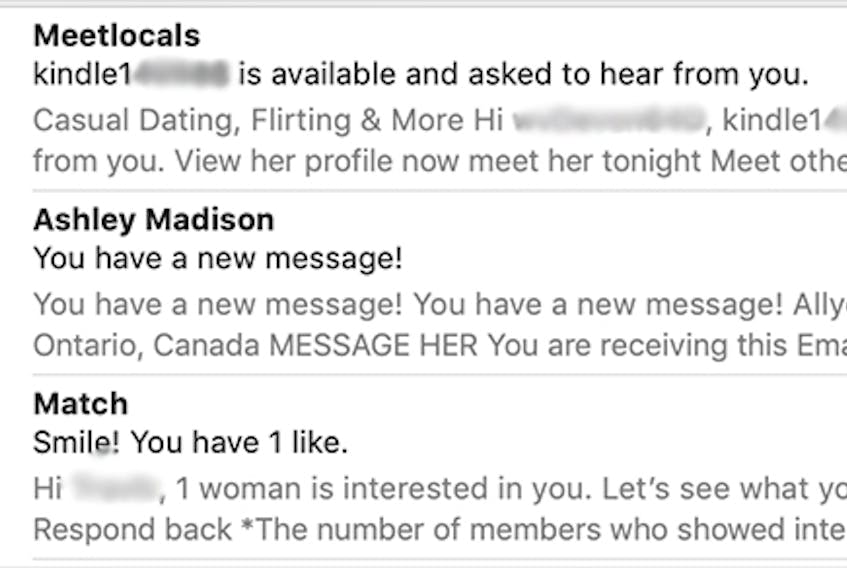Got a hot lead from your dating app? Tempted to upgrade to a paid account so you can see who’s got the “likes” for you?
Not so fast.
If you’re looking for love or a hook-up on an app like Tinder, you may want to consider why its parent company is being sued by the U.S. Federal Trade Commission for fraud.
Match Group, the owner of Tinder, OkCupid, Match.com, Plenty of Fish and a few others, has dating sites in 42 languages across 190 countries. That’s pretty much everywhere – the United Nations only has 193 countries.
There are usually free registrations to its products, but often paid subscriptions are required to see messages from potential suitors. The FTC contends that Match sent fake messages to trick people into buying subscriptions.
Over two years from mid-2016 to May 2018, the FTC says almost half a million people were suckered into subscriptions within 24 hours of receiving notifications of alleged love interest.
“Consumers reasonably believe, based upon these advertisements, that other Match.com users are interested in establishing a possible dating relationship with them,” the FTC complaint says. “Hundreds of thousands of consumers subscribed to Match.com shortly after receiving a fraudulent communication.”
Match intends to fight the case vigorously, claiming that the FTC “misrepresented internal emails” and “cherry-picked data” to make its case.
“Fraud is never good for business, which is why we spend so much time, money and emotional capital to fight it,” Match says on its website. “The vast majority of the users that the FTC characterizes as fraudulent are not romance scams or similar types of fraudsters, but spam, bots and other users attempting to use the service for their own commercial purposes.”
There is no equivalent of the FTC in Canada, where Tinder is the number one dating site, according to the website Business of Apps.
But there are several Canadian consumer protection laws and agencies such as the Canadian Anti-Fraud Centre and the federal Competition Bureau, which undertakes enforcement. The bureau acts confidentially so it couldn’t confirm whether it’s investigating dating sites, a spokeswoman told The Sun. But it did publish a consumer alert in 2017 about them.
The Beatles sang “money can’t buy me love,” but longing for love can sure beget money: Match reported 2018 revenue of US$1.73 billion and says Tinder is the number two grossing app in the world.
Copyright Postmedia Network Inc., 2019









